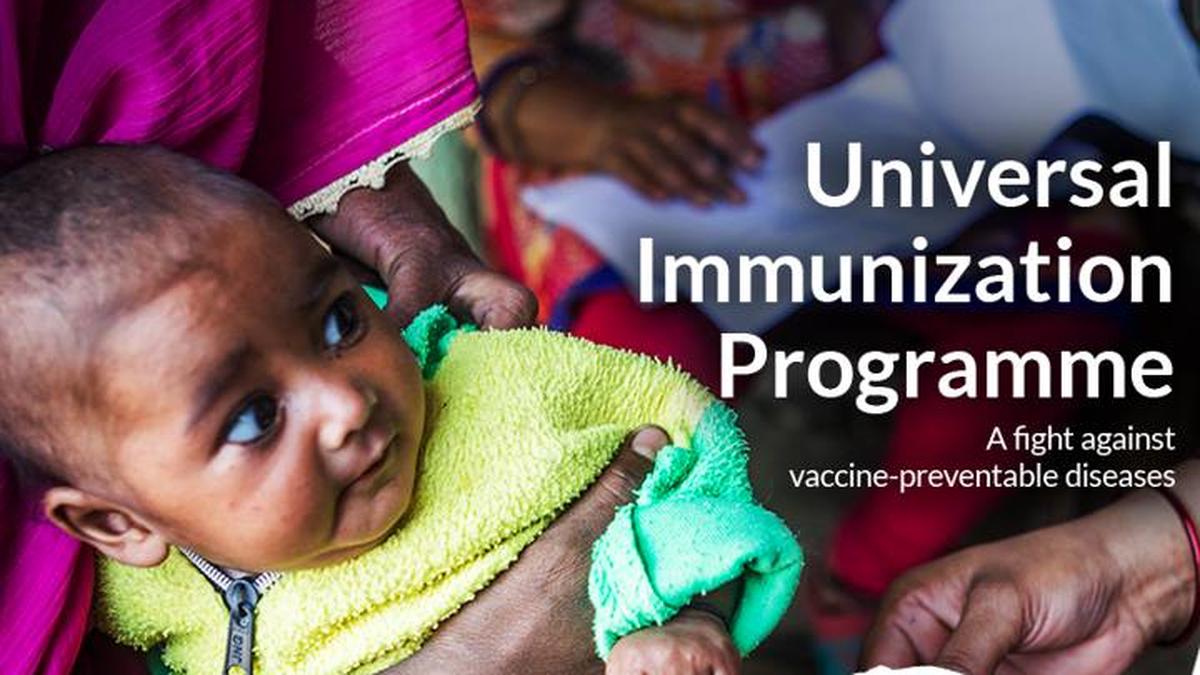Science
India’s Vaccination Drive: A Model for Global Public Health Success

India’s approach to vaccination has garnered international recognition as a leading model in public health. The country’s Universal Immunisation Programme (UIP) is noted for being the largest of its kind globally, providing essential immunisations to approximately 2.6 crore infants and 2.9 crore pregnant women each year. This initiative has played a significant role in reducing under-five mortality rates from 45 to 31 deaths per 1,000 live births between 2014 and 2021, according to the Sample Registration System 2021.
The UIP offers free vaccinations against 12 diseases through a combination of nationwide and localized efforts. In the last decade, it has expanded to include six new vaccines, such as the Measles-Rubella and Pneumococcal Conjugate vaccines, enhancing coverage across various age groups. In 2014, the Indian government launched Mission Indradhanush (MI) to improve vaccination rates, particularly targeting underserved areas. By 2023, this initiative had successfully completed 12 phases, immunising over 5.46 crore children and 1.32 crore pregnant women.
Challenges and Innovations in Vaccination
Despite the progress, challenges persist, especially in reaching remote and migratory populations. Areas with low awareness and vaccine hesitancy present significant obstacles. To bridge these gaps, India has implemented innovative strategies such as ‘zero-dose’ outreach and enhanced digital tracking capabilities. These efforts aim to improve accessibility and overall vaccination coverage.
India has maintained its polio-free status since 2011 through rigorous surveillance methods and lessons learned from the National Polio Programme. The country successfully eliminated maternal and neonatal tetanus in 2015 and was declared Yaws-free in 2016. Additionally, a nationwide Measles-Rubella catch-up campaign between 2017 and 2019 saw 34.8 crore children vaccinated, marking a significant step forward.
The COVID-19 pandemic posed challenges to routine immunisation services, leading to notable setbacks. Disruptive measles outbreaks between 2022 and 2024 highlighted immunity gaps among unimmunised children. In response, the government launched the Intensified Mission Indradhanush 5.0 in 2023, specifically targeting under-five children nationwide, while the Zero Measles-Rubella Elimination campaign initiated in 2025 aims to boost public awareness and achieve over 95% national coverage for Measles-Rubella vaccinations.
Technological Integration and Global Leadership
India has prioritized technological integration to enhance vaccination logistics. The Pradhan Mantri Ayushman Bharat Health Infrastructure Mission has strengthened the system, while the U-WIN platform facilitates end-to-end digital vaccination tracking for pregnant women and children up to 16 years. This technology allows for any-time, anywhere access to vaccination services, particularly beneficial for migratory populations.
During the COVID-19 pandemic, India emerged as a leader in vaccine development, launching its vaccination programme on January 16, 2021. By January 2023, over 220 crore doses had been administered, achieving 97% coverage with one dose and 90% with two doses, a significant public health achievement on a global scale. India’s domestic vaccine development and manufacturing capacity enabled it to meet national needs while also supporting numerous low- and middle-income countries through the Vaccine Maitri initiative, embodying the spirit of Vasudhaiva Kutumbakam (the world is one family).
On March 6, 2024, India received the Measles and Rubella Champion Award from the Measles and Rubella Partnership, recognizing its exemplary efforts in the South-East Asia region. The strides made in vaccine coverage, supply chain enhancement, and public trust have positioned India as a global leader in immunisation practices.
While these achievements are commendable, ongoing efforts are necessary to connect high-quality disease surveillance with immunisation initiatives. A comprehensive, ONE-HEALTH approach that integrates monitoring of human, animal, and environmental health systems is essential for improving pandemic and epidemic preparedness. As India continues to innovate and expand its immunisation efforts, its experience offers valuable lessons for countries worldwide.
-

 World5 months ago
World5 months agoSBI Announces QIP Floor Price at ₹811.05 Per Share
-

 Lifestyle5 months ago
Lifestyle5 months agoCept Unveils ₹3.1 Crore Urban Mobility Plan for Sustainable Growth
-

 Science4 months ago
Science4 months agoNew Blood Group Discovered in South Indian Woman at Rotary Centre
-

 World5 months ago
World5 months agoTorrential Rains Cause Flash Flooding in New York and New Jersey
-

 Top Stories5 months ago
Top Stories5 months agoKonkani Cultural Organisation to Host Pearl Jubilee in Abu Dhabi
-

 Sports4 months ago
Sports4 months agoBroad Advocates for Bowling Change Ahead of Final Test Against India
-

 Science5 months ago
Science5 months agoNothing Headphone 1 Review: A Bold Contender in Audio Design
-

 Top Stories5 months ago
Top Stories5 months agoAir India Crash Investigation Highlights Boeing Fuel Switch Concerns
-

 Business5 months ago
Business5 months agoIndian Stock Market Rebounds: Sensex and Nifty Rise After Four-Day Decline
-

 Sports4 months ago
Sports4 months agoCristian Totti Retires at 19: Pressure of Fame Takes Toll
-

 Politics5 months ago
Politics5 months agoAbandoned Doberman Finds New Home After Journey to Prague
-

 Top Stories5 months ago
Top Stories5 months agoPatna Bank Manager Abhishek Varun Found Dead in Well









